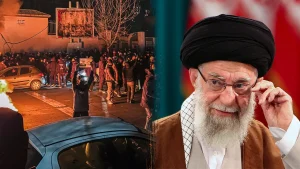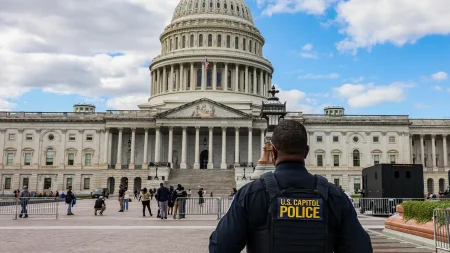Behind the Suburban Facade: Mafia Wives Involved in $2 Million Betting Ring
In the affluent suburbs of New Jersey, where manicured lawns and luxury SUVs define the landscape, two women appeared to be living the quintessential American dream. Kim Zito, 53, and Rosanna Magno, 52, portrayed themselves as devoted sports moms supporting their athletic sons while enjoying the fruits of suburban prosperity. Zito’s social media presence painted a picture of affluence – showcasing her small dogs, real estate flipping ventures, and glamorous nights out with friends carrying designer bags. She followed celebrities, shared motivational quotes, and frequently posted loving images with her son Frank in their upscale home. Magno maintained a more reserved online presence, with only a LinkedIn profile highlighting her professional role as a client services manager at Essex Retirement Services, where she claimed expertise in “designing tailored retirement solutions.” Their comfortable homes in Fairfield and Oakland, valued at approximately $800,000 and $700,000 respectively, further cemented the image of successful suburban mothers.
However, federal prosecutors have now alleged that beneath this carefully crafted veneer lay connections to organized crime that have shocked their communities. According to authorities, both women were charged with racketeering for their roles in a $2 million illegal online sports betting operation allegedly financed by Joseph “Little Joe” Perna, a purported soldier in the Lucchese crime family. Perna has significant connections to both women – Zito is his current wife, while Magno is his ex-wife. The criminal enterprise allegedly operated between 2022 and 2024, with prosecutors claiming Zito accepted illegal gambling proceeds in late 2023, while Magno attempted to conceal gambling ledgers during a police stop in April 2024. These allegations have cast a dark shadow over their seemingly idyllic suburban lives and raised questions about how deeply intertwined their family finances were with alleged criminal activities.
At the center of this operation were their sons, young men who had been celebrated local athletes in their communities. Frank Zito, 23, allegedly oversaw the sportsbook operation alongside brothers Joseph Magno, 25, and Anthony Magno, 23. Joseph had previously distinguished himself as a wrestling standout at Ramapo High School, while Anthony played football for the prestigious Bergen Catholic High School program. Also implicated was Michael Cetta, 23, Rosanna Magno’s nephew and a former Rutgers wrestler, along with Dominic Perna, 23, a cousin. The involvement of these young men – all in their early twenties and products of well-regarded athletic programs and educational institutions – highlights how organized crime can potentially infiltrate and corrupt even privileged suburban youth with promising futures. The stark contrast between their athletic achievements celebrated on social media by proud parents and their alleged criminal activities creates a troubling narrative about paths taken and opportunities squandered.
According to court documents, the illegal gambling operation extended well beyond New Jersey, forming what prosecutors described as a national network of bookmakers operating under Little Joe Perna’s directives. The enterprise allegedly worked systematically to lure bettors into making illegal wagers, with the proceeds enriching the defendants while funding the continuation and expansion of the scheme. The charges against all fourteen individuals implicated in the operation span multiple states, including Florida and Rhode Island, suggesting a sophisticated and far-reaching criminal network. This case appears to be part of a broader pattern of Lucchese crime family activities in the region, with authorities having taken down another gambling ring involving 39 people, including a sitting councilman, earlier in the year. The family has also been implicated in separate allegations involving game-fixing and poker-rigging that allegedly involved prominent professional basketball figures.
The juxtaposition of these women’s public and private lives raises intriguing questions about knowledge, complicity, and the complexities of family relationships when intersected with alleged criminal activities. Kim Zito’s extensive social media presence, sharing glimpses of her life renovating properties and socializing with friends, creates a stark contrast to the racketeering charges she now faces. Similarly, Rosanna Magno’s professional identity as an insurance agent specializing in retirement solutions stands at odds with allegations that she attempted to conceal gambling documentation from law enforcement. The case brings to mind popular cultural narratives like “The Sopranos” or “Goodfellas,” where the intersection of suburban domesticity and organized crime creates complex moral territories for family members who may benefit from, participate in, or turn a blind eye to illegal activities while maintaining respectable community facades.
As this case progresses through the legal system, it serves as a sobering reminder that appearances can be deceiving and that criminal enterprises often operate behind carefully constructed veneers of normalcy. The comfortable homes in affluent New Jersey communities, the social media posts celebrating family milestones, and the professional LinkedIn profiles highlighting expertise and experience – all these elements combined to create images of suburban success that prosecutors now allege concealed participation in a multi-million-dollar illegal gambling operation connected to one of the most notorious crime families in American history. While neither Zito nor Magno could be reached for comment, and their attorneys have not responded to inquiries, their cases will likely continue to fascinate the public as they challenge our assumptions about who becomes involved in organized crime and how such activities can be hidden in plain sight among the trappings of suburban prosperity.












